Interview with Catherine Filloux
I interviewed my friend, the playwright, Catherine Filloux, by e-mail. We e-mail often, in any case, between Berlin, where I am based, and her home in New York. During this exchange, though, she’s in Houston rehearsing her new opera, New Arrivals, a chamber opera with music by John Glover, commissioned by Houston Grand Opera, which she describes as “a surreal trip on an airplane for refugees who can never go back.”
I’ve decided not to doctor this interview. It’s clear that Cat and I are talking at cross-purposes. I want her to rail about the state of the American theatre, one of my favorite pastimes, but she refuses—deflecting my questions towards love, of all things. We are very different, almost opposites in this respect. And yet, or because of this, we care deeply for each other and each other’s work.
Lydia: HowlRound is a site in which issues related to the state of the American theatre are raised and discussed. For someone like you, for whom the issues of genocide and other forms of state violence and its crimes and scars are the core of your life’s work in the theatre, I could imagine our discussions on HowlRound might feel a little less relevant—even trivial?
Cat: It may sound cliché, but the theatre is my life. It was born for me through my husband John who is the bravest and most generous person I know and also an actor. His love for acting is humbling. Theater embodies love for me. It embodies collaboration, risk, and trust. It is a great honor to be able to have another play produced. Each time this happens I hope that it will not be the last. My love for theatre is also born from my parents, as if in addition to giving birth to me, they gave birth to theatre. My father, Jean, and mother, Odette, feel like great characters in a play. A man who lived in a poor landlocked peasant village in France and decided to sail a catamaran across the Atlantic. I live in New York City and my father sailed that catamaran with red Chinese sails into New York harbor. A woman who lost her native land, Algeria, and never returned, but gave that sunshine to her children instead. The sun lives in my mother, the most bilingual person I have ever known, whose love for words and joy are the best kind of theatre.
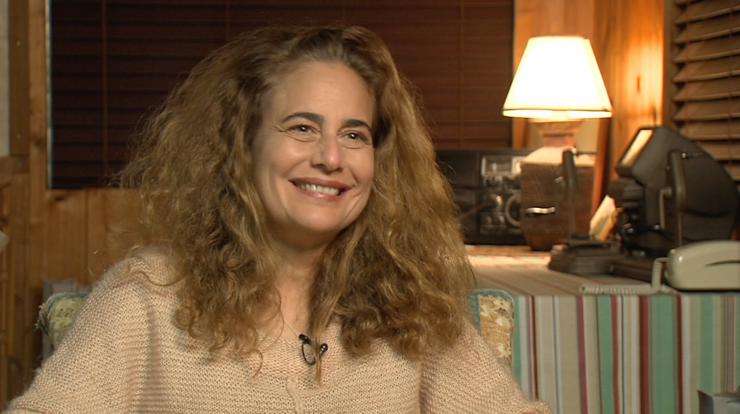
The State of American theatre is the state I live in. It’s the 51st state. Or perhaps my one and only true State, because none of the states of the United States are truly states. The concept of the United States is based on stealing, originally from the indigenous Indians. I am also humbled by this fact. Scars from human rights abuses create pain and trauma: loss of loved ones, parents, siblings, friends, land, language, and joy. This loss is with me every single day as a human being, and so it is not the “big issues” which guide me, but my own personal connection to love which urges me to build plays, as what can be called pieces of art, like castles of hope. I use the word "castle" not for its grandiosity, but for its qualities of dream and magic. And theatre can be like a haven with a moat around it, somewhere sacred where you get to come in, no matter who you are. You are protected, in the sense that a play is a different gift for each person that sees it. The tickets to my new play LUZ at La MaMa are eighteen dollars. It’s affordable and accessible for everyone.
The State of American theatre is the state I live in. It’s the 51st state. Or perhaps my one and only true State, because none of the states of the United States are truly states.
Lydia: I see you as someone very driven to affect the state of the world by bringing awareness to the human toll of great crimes. Do I have that right?
Cat: How do people not give up? That spirit of survival is profound. That is human nature. Injustice comes in all forms. The body can be attacked from without and from within for no reason, and then illness used as a stigma. It humbles me every day. I have written about the Khmer Rouge, the Bosnian genocide, honor killings, institutionalization of women, asylum practices in the United States. All my work comes from the point of view of my own complicity. I watch. And that watching has dual meanings. I watch in order to make change, but also I do watch, passively. I’m not affecting the state of the world. Every day I watch things I don’t want to see. That’s my journey and I work with other theatre artists to put stories onstage so we can share them. And it’s a ripple effect. As one works in any field, one can affect change through the growing number of collaborators, audiences, friends, supporters. It’s like a surge, a series of waves that are growing. This is a tsunami of the best kind. The sum is greater than the parts.
Lydia: I am curious what someone with ambitions like yours is doing in a place like the American theatre. (You know the line: what’s a nice girl like you doing in a place like this?)
Cat: I don’t really feel I belong in any one place, so a unifying place for me to live is the American theatre. It brings together disparate parts. The people who show up after the performance and introduce themselves to me, and with whom I forge a lasting friendship, and a plan for change. Or the people who seek me out and with whom I discover a soul mate. It’s like being on a radar system, which attracts a need. And we’re not talking about a radar to give someone a speeding ticket. (Do policemen monitor the speed of traffic with a radar system in Berlin?) But a radar that’s a homing device. Plays have always led to other plays for me. You’re walking along large rocks on a beach or shore and you notice that one rock leads to another, and you make a path. I also love the symbol of a prism for many reasons. One reason is that a certain subject gives off many lights at the same time and a play can allow many colors, and opposites, to be revealed at the same time.
Lydia: Do you have any thoughts, strong feelings, regarding the state of the American theatre? Do you wake up thinking about it like I do?
Cat: Yes, I wake up thinking about the American theatre. There will be a Vulture puppet in LUZ. My director, José Zayas, has mentioned to me that the puppeteer, Emily DeCola, is trying to envision the best way to embody this Vulture. When I visited the basurero (the garbage dump) in Guatemala City with a dear friend, we looked at the hundreds of vultures flying in the sky and also hanging out on the tombs in the cemetery above the dump. The Vultures were also watching. La MaMa is a theatre with an extensive history of puppetry, so I think the Vulture will be in its right place in the American theatre. I’ve never written a play with eight actors before. And some of those actors play multiple roles, so it’s a big cast of characters. José and the actors whom we cast are heroes of the American theatre. Honestly, I feel that way. I’ve admired José Zayas’s work and am excited to see him choreograph this big show. José moved me when he spoke about my characters; he told me something about the character of Jesus that I will never forget. I don’t want to give away the plot. Maybe if you want you can ask me after you see the play. I also wake up thinking about intermissions and how I don’t want one for this play. I want it to travel swiftly and take the audience on a ride. Mary Fulham, the wonderful woman producing LUZ with La MaMa, suggested that I meet Sergio R. Reyes, the Guatemalan composer/violinist for the show, and a few weeks ago Sergio and I unearthed a marimba and vibraphone in the La MaMa Archives with help from composers/musicians Yukio Tsuji and Michael Sirotta. The American theatre is a historical excavation. As Michael and Yukio assembled the instruments, they recalled prior performances with Ellen Stewart. We will record Sergio’s composition in the Archive. I think about props when I’m waking up. What’s it like for actors to eat Pollo Campero onstage? Will there be real chicken? (I don’t think so.) What’s the different stage language for dream and reality for my character of Alexandra? How do we see a dream onstage? Am I dreaming or am I awake? What will the Roasted Swan look like? How many swans have gone missing? We are still missing one actor. Will we find him?
Lydia: You have insights, I know you do, about how to make a life in the theatre, despite its almost total disregard for the issues you care about. I believe your outrage and compassion about the state of the world keep you going. But are there any more mundane ways you’ve found to cope with the actual theatre world? How do you process all the stuff that filters in that stops so many others?
Every time I write a play it’s like this: a Pandora’s Box that is opened. Again, a prism, with all sorts of opposing and scintillating truths and ambivalences. I take that Pandora’s Box and shape it into my play. The journey through the Pandora’s Box can take years.
Cat: In weakness there is strength. Thanks for the compliment about my compassion. You just sent me a recent article about the stoning of a woman in Sudan. When I was in Cambodia in 2008 I heard about the stoning of a young girl in Somalia. I tracked down some people who knew the family of the girl. These people lived in Ottawa, Canada. I thought I could take a train there from Toronto; however, it was very far away, so I had to take a plane from New York to Ottawa. The family in Ottawa was very nice to me and they spoke to me about what they knew. They opened their house to me and we talked. Every time I write a play it’s like this: a Pandora’s Box that is opened. Again, a prism, with all sorts of opposing and scintillating truths and ambivalences. I take that Pandora’s Box and shape it into my play. The journey through the Pandora’s Box can take years. For example, I tracked down a very kind journalist, Nate Thayer, in Maryland along the Chesapeake Bay, to watch his footage of Pol Pot. That was for my play Silence of God. When I finally showed Silence of God to Craig Etcheson, an investigator, who has been working on the war crimes tribunal in Cambodia for the past six years, this is part of what he wrote:
How do you do that? As I used to cry out sometimes in my younger days, Art!! Art!! Art!! When you told me about this project, I could not imagine how you were going to treat it; now I see why I couldn't imagine it, and that's because I could never have imagined anything like this! I can't wait to see it performed, though I also can't imagine how some of the staging will be accomplished. But then, I guess there are some pretty sophisticated theatrical equivalents to "movie magic" these days. In any case, in the opinion of this often ruthless (though in this instance not exactly disinterested) critic, you have hit the mark dead on.
I want to stress the idea of imagination. This is what I live for in the theatre world. I was the runner up for the McKnight grant for my proposal about the stoning play, and I had a personal commitment to LUZ that had been developing and was my priority. So I had to shift my focus. One of the themes of LUZ is gender-based violence, though it does not include stoning. I am sorry the stonings continue. One of the subjects that I discussed at length with the family in Ottawa was Paradise.
And if people see and/or read all my plays and libretti, they can add an adjective to describe my body of work, if they want.
Lydia: A discussion set in motion about political theatre on this site some time back fell pretty flat. Few participated and those who did tended to take an attack mode against those making and asking for political art in our culture. It’s as if artists in our culture are made to feel tainted by such an association, lesser as artists. Would you say you are a political playwright? What does that mean, anyway? It is said that all art is political, promoting a worldview of some kind, but beyond that?
Cat: I’d say I’m a playwright. After people see and/or read my play they may want to add an adjective. And if people see and/or read all my plays and libretti, they can add an adjective to describe my body of work, if they want. A comparison comes to mind. I have never been to Vietnam. I could never bear, up to now, to tell anyone in Cambodia that I am going next door to Vietnam. It’s not that Vietnam isn’t a beautiful, an incredible place; I’m sure it is. I’ve heard that it is. It’s out of respect to Cambodia that I don’t go, and I suppose if anyone wants to say I’m stupid, they have the right. And I don’t write novels. It’s out of respect to playwriting. And again this may be absurd reasoning. I’m sure it is. It’s part of my genetic makeup. I’m very loyal, in a certain kind of way. I am a playwright.
Lydia: In England, contemporary social issues of the day of all kinds, land on the stages very quickly. We know this is not the case in the States. I am conjecturing here: but perhaps you focus on the largest issues because they are universal and ongoing?
Cat: Back to those people up above, my family, my friends. I am guided by their integrity and by the dire, the urgent. I was raised in a culture where you’re not supposed to talk about yourself. You are a very good interviewer.
Lydia: What other issues would you write about/might you write about, if we lived in another kind of theatre environment, more like England, say?
Cat: I’m sorry, I don’t know much about England. I was recently in Northern Ireland, but I’ve only had work done in England once, though I would be very interested to work there again. Is it a Paradise over there for the playwright? I’d like to write about Paradise.
Lydia: A final question, Cat. What would you have been if you hadn’t been a playwright?
Cat: Homeless.
Catherine Filloux’s new play LUZ opens at La Mama on September 28, 2012, and runs through October 14.

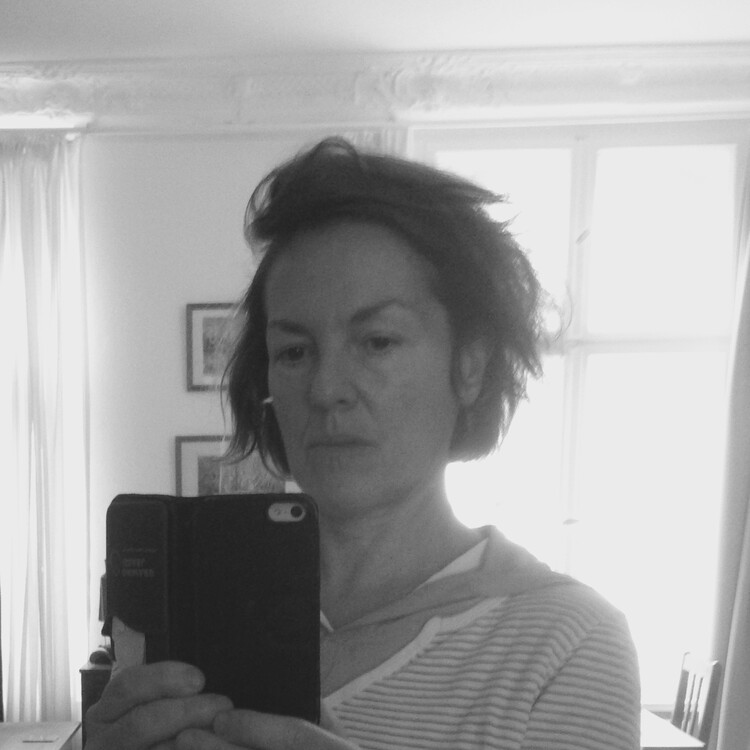
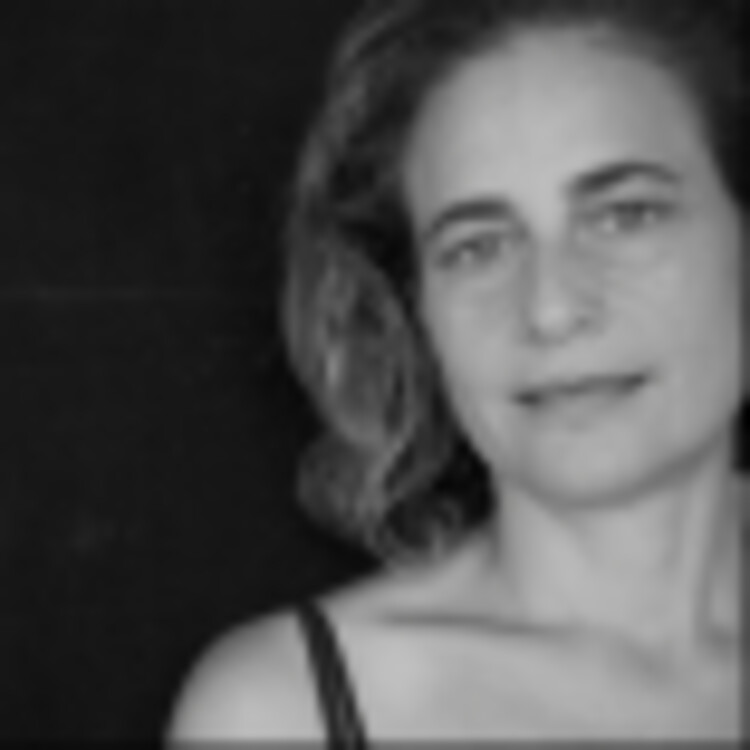
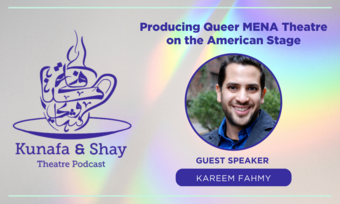



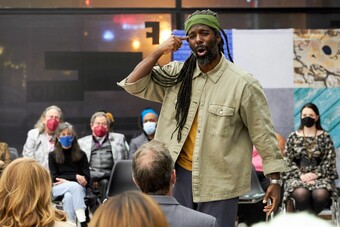




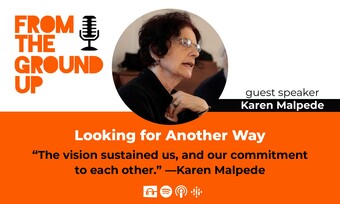


Comments
The article is just the start of the conversation—we want to know what you think about this subject, too! HowlRound is a space for knowledge-sharing, and we welcome spirited, thoughtful, and on-topic dialogue. Find our full comments policy here
What powerful eavesdropping this is.